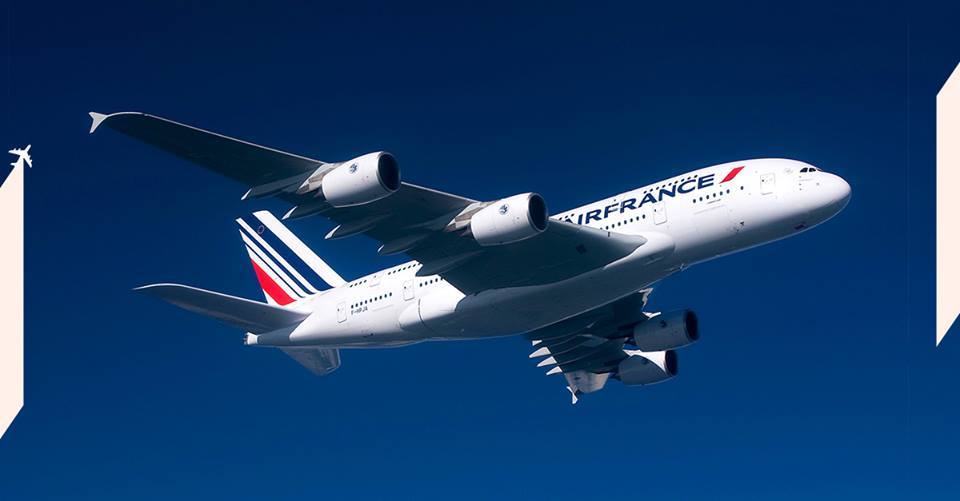Business and Economy
Air Canada exec Ben Smith to face labour headwinds as new CEO at Air France KLM

Smith will replace former Air France CEO Jean-Marc Janaillac, who quit more than three months ago when staff turned down his offer of a pay deal aimed at halting a wave of strikes. (Photo: Air France/Facebook)
MONTREAL — Air Canada’s chief operating officer Ben Smith has been named the new CEO of Air France-KLM.
The longtime No. 2 at Air Canada will be the first non-French national to helm the Franco-Dutch carrier.
Smith will replace former Air France CEO Jean-Marc Janaillac, who quit more than three months ago when staff turned down his offer of a pay deal aimed at halting a wave of strikes.
Smith, who has shepherded Air Canada through multiple labour talks with pilots, flight attendants and machinists, will come on board amidst growing competition and labour turbulence overseas.
“I am well aware of the competitive challenges the Air France-KLM Group is currently facing and I am convinced that the airlines’ teams have all the strengths to succeed in the global airline market,” Smith said in a release.
Walter Spracklin, an analyst with RBC Dominion Securities Inc., said Smith’s departure was a setback for Air Canada, “but not irreparable.”
“We had considered Mr. Smith to be the airline’s next CEO and therefore his departure leaves a gap in terms of succession,” Spracklin said.
Air Canada shares remained relatively stable this week, closing at $23.87 Thursday.
The Air France board of directors approved Smith’s hiring at a board meeting Thursday.
He will leave Air Canada on Aug. 31 and take up his duties as CEO on Sept. 30.
Smith joined Air Canada’s executive committee in 2007, just before rising fuel prices and the financial crisis saw the airline cut 2,000 jobs and struggle through a tepid growth.
Labour strife with flight attendants and pilots in 2011 and 2012, respectively, preceded a period of relative calm, with 10-year collective agreements signed between the company and both groups in the last four years.
“He was a very integral part of ensuring labour peace,” said Robert Kokonis, president of Toronto-based consulting firm AirTrav Inc.
Recent tweaks to a collective agreement with pilots at Air Canada’s low-cost Rouge unit allowed the carrier to use more narrow-body planes for the subsidiary, a “weapon” Air Canada can now use to compete against ultra-low-fare upstarts such as WestJet Airlines Ltd.’s Swoop and Edmonton-based Flair Airlines, Kokonis said.
The narrow-body aircraft operate at a lower cost and could replace smaller regional aircraft operated by airline partners like Jazz on some routes.
Challenges await Smith abroad, where full-service, partially subsidized Gulf carriers and low-cost European airlines threaten to squeeze flag carriers, Kokonis said.
Meanwhile labour turmoil on the European tarmac continues. Pilots at Air France, Brussels Airlines and Ryanair have all staged work stoppages in recent months.
“We’ve had strikes in Canada, but we’ve never had the same level of militancy in any of our airline union ranks, arguably, compared to the circus in France,” Kokonis said, referring to a 13-day walkout by Air Canada pilots in 1998.
Anne-Marie Couderc, non-executive chair of Air France-KLM highlighted Smith’s history as a deal maker.
“As a man who prefers dialogue, he developed and implemented the historical long-term win-win agreements with the airline’s social partners for the benefit of Air Canada’s teams, the airline and all other stakeholders,” Couderc said in a release.
The enthusiasm was not universal.
“The board of Air France-KLM always makes the worst decisions,” said Philippe Evain, head of Air France’s main pilot union, in a tweet earlier this week. “Is it going to hand over the keys to Air France to Americans?”
A union representing Air France ground staff questioned Smith’s potential pay package, which the French newspaper “Liberation” reported will hit 3.3 million euros a year.





















